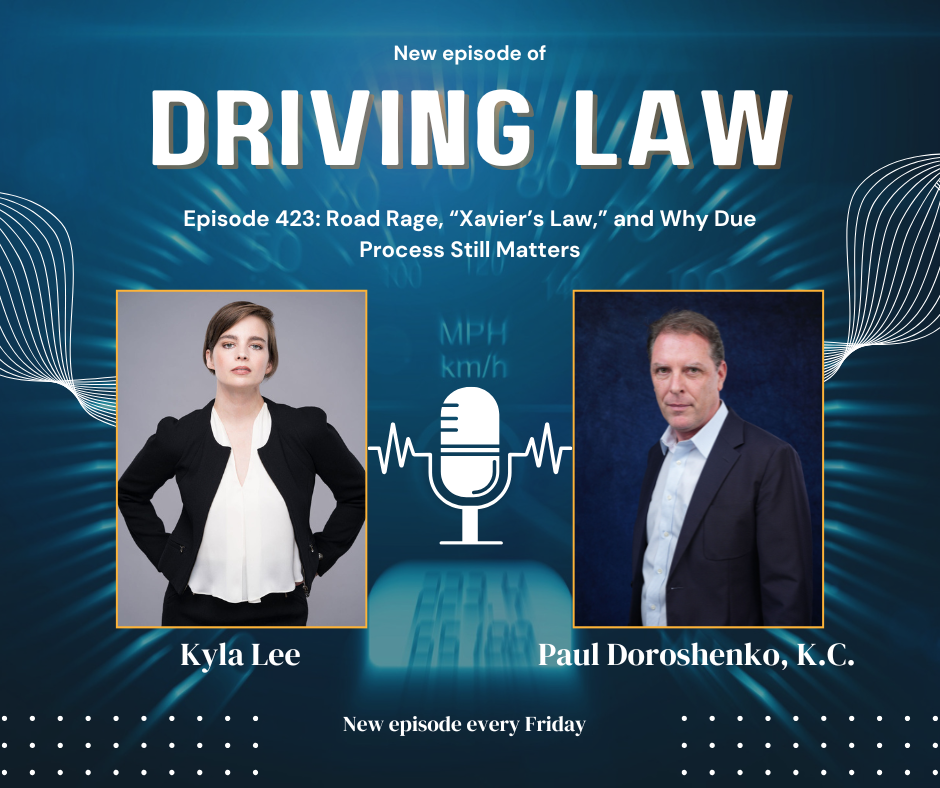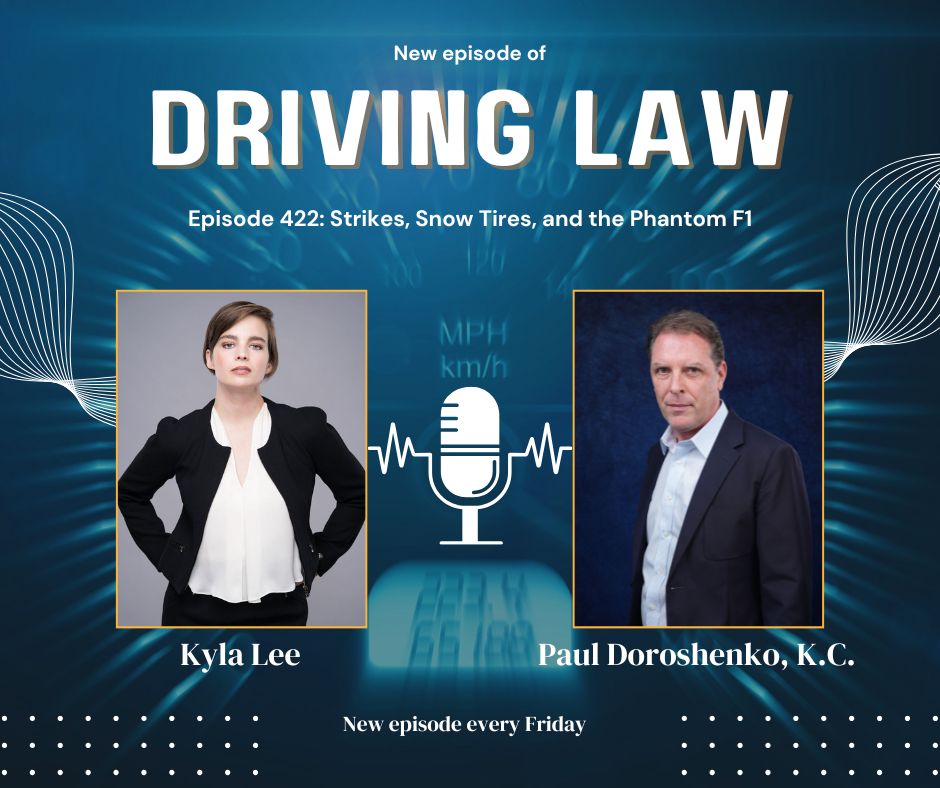It has now been fifteen years since British Columbia introduced the Immediate Roadside Prohibition (IRP) scheme. When it was rolled out in 2010, the government promised dramatic reductions in impaired driving deaths and injuries. We were told that fast, automatic penalties would save lives, scare drivers straight, and achieve results the criminal courts never could.
Fifteen years on, the numbers tell a very different story.
A Record of Empty Promises
Despite the province’s self-congratulatory press releases and dashboards, road-safety statistics over the last decade and a half show no meaningful, sustained decline in fatalities or serious injuries attributable to impaired driving. Year to year, the numbers wobble slightly up or down, but there is no clear trend that can be credited to the IRP regime. The much-touted early “drop” in collisions was a short-term blip, not a permanent transformation.
The province continues to claim success by cherry-picking time frames or using vague “lives saved” models, but when you look at the raw figures over the last 15 years, road deaths and injuries remain stubbornly flat. If this were a business case, the shareholders would be asking hard questions about the return on investment.
The Real Reasons Roads Are Safer
Where there have been modest improvements in road safety, they are more plausibly explained by factors that have nothing to do with IRPs:
Vehicle safety advancements have played a major role. Modern cars are dramatically safer than those on the road in 2010. Advanced driver-assistance systems, electronic stability control, and better crash engineering all save lives regardless of who is behind the wheel.
Our attitudes as a society about impaired driving and dangerous driving have also shifted. Social norms have shifted. Ride-sharing services, designated drivers, and widespread public messaging mean fewer people treat drunk driving as acceptable, even without the threat of an IRP.
Sober curious and alcohol-free individuals are also making their mark on the statistics related to alcohol-impaired driving. Younger people consume less alcohol than previous generations. This demographic shift reduces impaired driving risk independent of roadside law.
Let’s not forget that older people also play a role in changing the statistical incidence of impaired driving, injury accidents, and deaths. Older drivers, who now make up a larger share of the population, are less likely to drink and drive in the first place.
Paradoxically, police now devote fewer resources to investigating collisions, which can reduce recorded numbers of impaired-related deaths or injuries without improving actual safety. This is in part due to the police being understaffed and under-resourced, as well as decisions made by provincial governments in British Columbia. The government has directed police not to attend collisions unless there is $10,000 of damage or more, a death or an injury, or a potential that somebody is intoxicated.
None of these trends owe anything to a 15-year-old administrative penalty system. They are broader social and technological developments that would have occurred whether or not the IRP scheme existed.
Rights Sacrificed for Nothing
What makes this failure so galling is the constitutional cost. The IRP model allows police officers to impose immediate prohibitions, vehicle impoundments, and thousands of dollars in fines based on a roadside screening device and minimal paperwork. There is no presumption of innocence. No right to a full trial. Limited disclosure. Tight deadlines. For fifteen years, British Columbians have been told to accept this erosion of civil liberties because it “saves lives.”
If the promised life-saving benefits are not materializing, then what exactly are we trading our rights for?
A Scheme in Search of a Justification
The government continues to defend IRPs as if the debate were over, but the evidence is thin. We have a system that punishes first and asks questions later, generates significant revenue through fees and penalties, and shifts the burden of proof onto ordinary citizens while insulating police and the state from meaningful accountability.
The only consistent winners are the provincial treasury and the bureaucracy that administers the program.
Time for an Honest Reckoning
After fifteen years, it is clear that the Immediate Roadside Prohibition regime has not delivered the public-safety revolution its architects promised. Roads are no safer today because of IRPs than they would have been through a combination of safer vehicles, changing drinking habits, and demographic trends.
If the goal is truly to reduce deaths and injuries, we should be investing in evidence-based measures—better road design, expanded public transit, mandatory collision-avoidance technology—rather than doubling down on a system that tramples due process for the sake of political optics.
The IRP scheme was supposed to be bold and innovative. Instead, it has become a cautionary tale: a harsh, rights-limiting program that delivered little more than headlines and a steady stream of administrative penalties. Fifteen years later, it is time to stop congratulating ourselves and start asking whether this was ever worth the cost.








